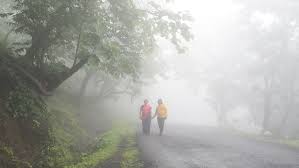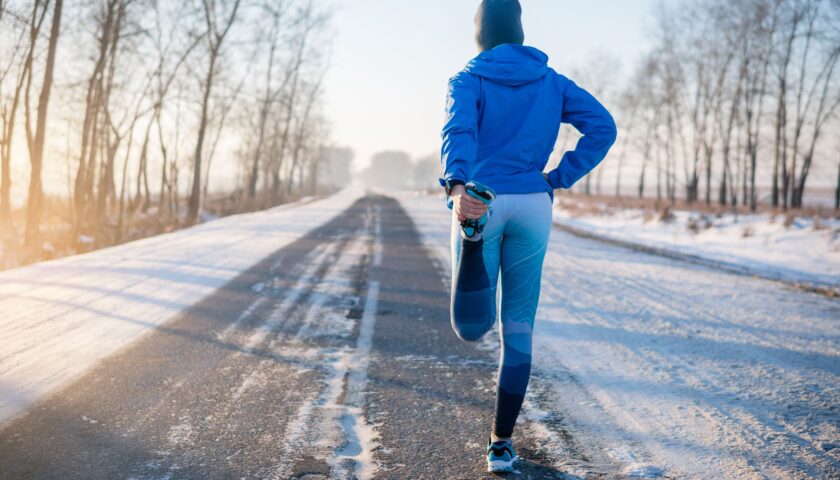Experts cold weather conditions increase the risk of stroke and heart attack as it constricts blood vessels; increasing Covid cases, another concern; so people must avoid morning walks till the fog conditions subside
As Kashmir continues to witness low and sub-zero night temperatures, which leads to foggy mornings, doctors have advised people to avoid going out for morning walks as it increases the risk of heart attack and stroke. Another concern is the increasing Covid cases.
Jammu and Kashmir’s capital Srinagar recorded the coldest night of the season on Saturday at 0.1°C while the tourist resort of Pahalgam in south Kashmir recorded a night temperature of minus 3.5°C. In the ski resort of Gulmarg, it was -2°C. The mercury went down to -1.1°C in Kupwara and -1°C in Qazigund.
For the past few days, the Valley has been witnessing foggy weather conditions in the mornings.
“The foggy conditions are owing to sub-zero temperatures and air pollution caused by increased traffic and burning of stubble and tree foliage. Pollution is high here at this time of the year,” said Farooq Ahmad Bhat, a meteorologist with Met department in Srinagar.
He said temperatures will keep dipping till a western disturbance will change the dry weather condition.
“We are expecting dry weather till November 20,” he said.
‘Heart attack, stroke patients double during winter’
Owing to chilly weather conditions, doctors association Kashmir (DAK) on Saturday said winter chill increases the risk of heart attack and stroke and issued an advisory as Covid was a ‘big factor’ this winter.
DAK president and influenza expert Dr. Nisar ul Hassan said the number of heart attack and stroke patients in Kashmir hospitals double in winter.
“Not only elderly people, but young and healthy individuals come to hospitals with massive heart attacks and strokes and some of them are brought dead,” he said.
Dr. Hassan said frigid temperatures constrict blood vessels that increase blood pressure, which makes heart attack or stroke more likely.
He said this winter Covid-19 is a big factor. “If you catch the virus, you are at an increased risk of having a heart attack or stroke,” he said.
For the past three weeks, active cases in the union territory, particularly in Kashmir valley have been increasing. The active cases have been slowly going up, seeing a 70% increase in 23 days since October 20.
What you must do
The DAK urged people to keep warm to prevent cold temperatures and perform a healthy workout inside. “If you move out, dress in layers, wear a hat, gloves, and scarf. Avoid going out in the chill for a walk and move your workout inside,” said Dr. Hassan.
“Take a healthy diet, rich in vegetables and fruits, and reduce your stress. If you already have cardiovascular disease, avoid strenuous activities, such as shoveling heavy snow. Get your annual flu shot, Covid-19 vaccine, and don’t forget to take vitamin D,” he said.
The weather is expected to change after November 20 as a western disturbance is expected to hit the region on November 21.
“Weather will most likely remain dry till the 20th. A feeble Western Disturbance is likely to affect the region between November 21 and 23, which may cause light to moderate snow over higher reaches especially northern parts of Kashmir,” said director MeT, Sonam Lotus.




